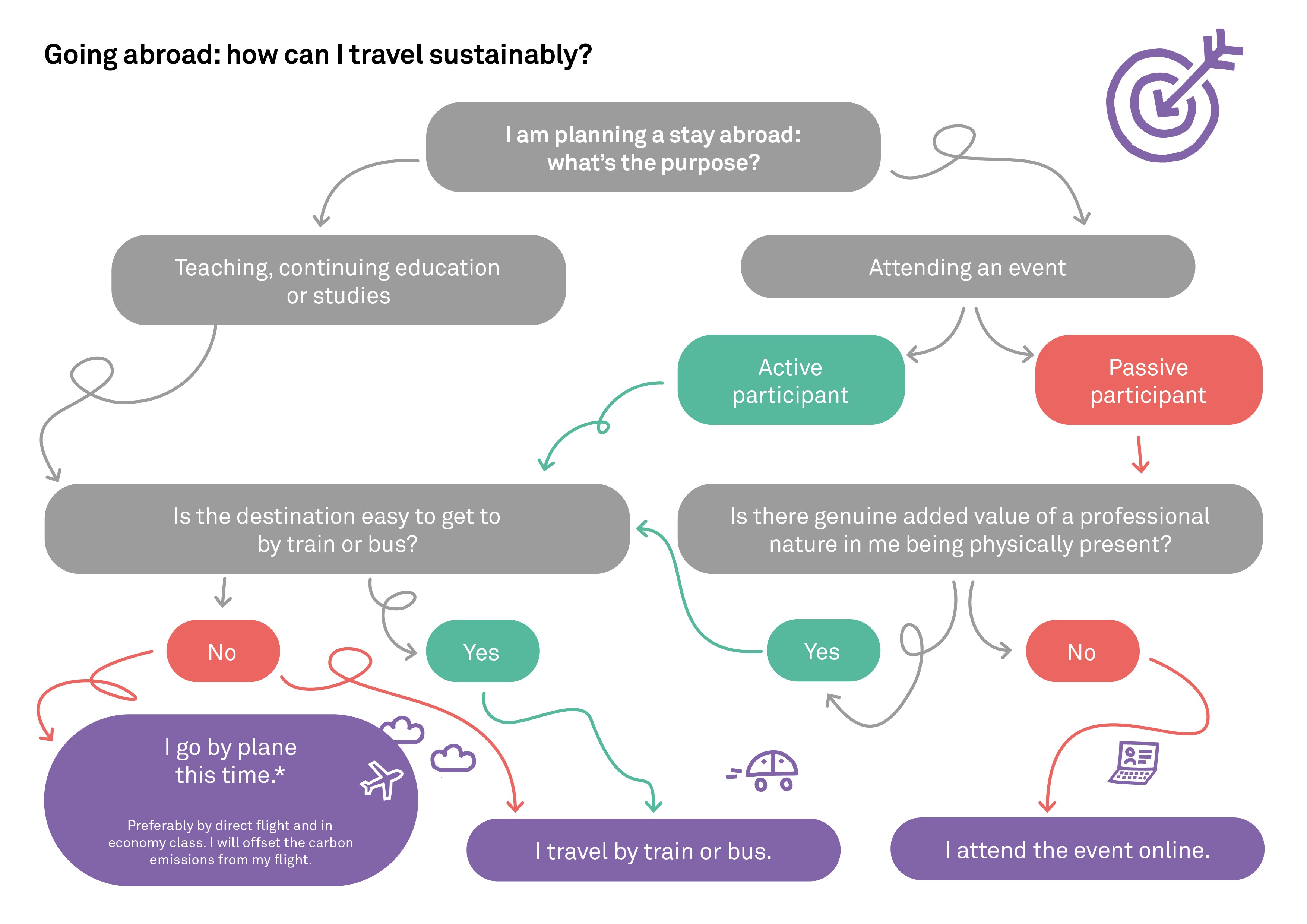Sustainability During Your Exchange

Table of contents
Things to Consider When Going Abroad

Spending time abroad can enrich your studies tremendously; however, mobility also comes with a carbon footprint. A single flight from Zurich to New York and back emits, per passenger, twice the annual per capita greenhouse gas budget that could be tolerated from a climate point of view. The following tips can help you make your trip abroad more sustainable:
- Select closer destinations. Europe has outstanding, excellent universities, many of them in neighbouring countries. Select your destination with reference to your field and the persons you can meet: Which researchers and teachers have published convincing ideas relating to the core questions that interest you?
- Combine multiple travel purposes. If possible, plan your trip so that it fulfills multiple purposes.
- Have a look at sustainability initiatives at your university of choice. Information on UZH sustainability research can be found here
- Calculate your route: Compare energy consumption, CO2 emissions and other environmental impacts for different modes of transport.
- Travel by bus or train. Trains and buses are environmentally friendly ways to travel within Europe.
Factsheet "Sustainability During your Exchange"
Factsheet "Connectivity Report: Sustainable Student Mobility" (PDF, 340 KB)
Tipps and tricks for train travel (PDF, 212 KB)
Trains versus planes (PDF, 166 KB)
Sustainable Erasmus Journey Platform (Connectivity Map, Testimonials)
Opportunities for an exchange within Europe can be found here:
Sustainable Travel Policy and Grant for Short Programs
Global Student Experience (GSE) has developed a sustainable travel policy for short programs that outlines which programs will be promoted and funded. Short programs offer diverse opportunities for international experiences, but can have a higher environmental impact than longer programs. GSE expects students to travel abroad by train or other environmentally friendly means of transportation (bicycle, bus, carpooling). If air travel is necessary, the minimum duration for the short program must be three weeks to be eligible for funding.
Sustainable Travel Policy for Short Programs (PDF, 90 KB)
The general rule for an UZH Mobility Grant for Short Programs (for outgoing students) by GSE are a weekly flat rate of CHF 500.- and an eco-friendly travel grant according to distance for the use of environmentally friendly means of transportation (the distance can be calculated using the Distance Calculator):
- If the duration of the short program is between one and three weeks, students are only eligible to receive the weekly flat rate and an eco-friendly travel grant if they use environmentally friendly means of transportation.
- If the duration of the short program is between three and four weeks, students are only eligible to receive the eco-friendly travel grant according to distance in addition to the weekly flat rate, if they travel by environmentally friendly means of transportation
- If a short program is eligible for funding, an additional UZH mobility scholarship ("Exchange made simple(r)") can also be applied for.
Find more information about the UZH Mobility Grant for Short Programs hereFinances and Scholarships.
"Grant for eco-friendly travel" from the Swiss-European Mobility Programme (SEMP)
Within the framework of the SEMP, based on the call for projects 2021, financial aid is now available to students who choose to travel to and from their destination using a means of transport generating lower CO2 emissions than the plane. You will receive a CHF 100.- grant if you are able to submit proof of travel by train, bus or bike (e.g. copy of the original travel ticket/s).
Find more information about the "Grant for eco-friendly travel" hereFinances and Scholarships.

